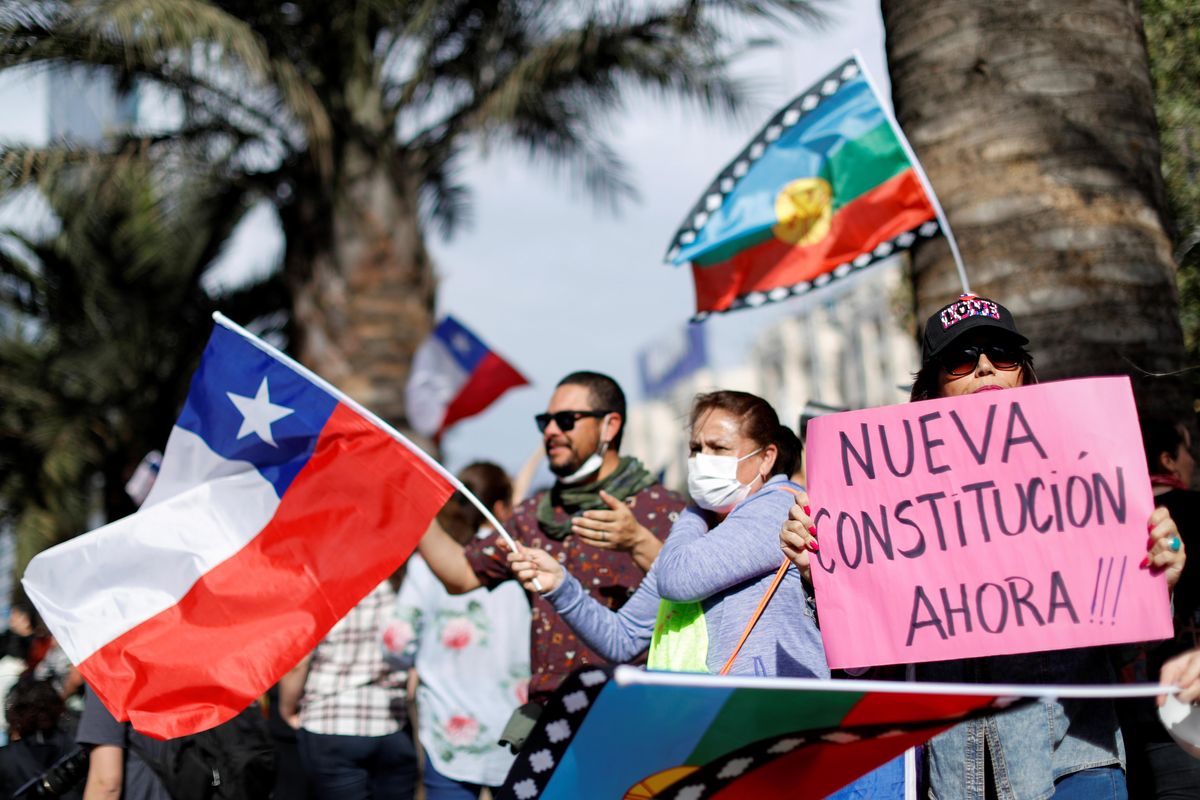A year and a half after millions poured into the streets of Santiago to protest inequality and the vestiges of the Pinochet dictatorship, Chileans voted this weekend to elect the 155 people who will rewrite the country's constitution.
The question now is not whether the people want change — clearly they do — but rather how much change their representatives can agree on. Overall, the new text is widely expected to beef up the role of the state in a country where a strong private sector made Chile one of Latin America's wealthiest yet also most unequal nations.
Here are a few things to bear in mind as the constitutional rewrite process kicks off.
Voters punished the right — and the broader political establishment. Sunday night was a shock for Chilean conservatives: the ruling center-right coalition got fewer delegates than their traditional leftist rivals, and failed to secure the one-third of the vote necessary to veto any radical changes. Meanwhile, independent candidates, most of them left-leaning, won a surprising majority in a similar rejection of the entire political class.
In theory, this shift to the left should pave the way for bold reforms in Chile's next constitution. But getting so many independents, many of whom are single-issue advocates, to agree on a wide range of reforms with delegates from the establishment leftist parties they no longer support, will be an uphill climb that adds uncertainty to the process. And if no consensus is reached within 12 months, the charter will stay as is, setting up the country for fresh unrest.
So, where can they find common ground? Most delegates want Chile to have a more robust social safety net. That means spending a lot more on education, healthcare and pensions, which until now have been mostly privatized alongside other essential public services like water. They will also push for the new constitution to enshrine equal rights for women, and to recognize the land rights of indigenous Chileans, who make up about 10 percent of the population but are not even mentioned in the current charter.
It may be harder, though, to get the needed two-thirds majority support on more radical proposals such as mandatory royalties on mining — which is a big deal for the world's top copper producer — or imposing minimum spending thresholds on social programs. Allowing the state to nationalize most private corporations is also unlikely to pass.
And more elections are coming... In late November, Chileans will go to the polls for the third time in little over a year, this time to vote for president, with the deeply unpopular incumbent Sebastián Piñera unable to run for another four years because of term limits. So far no major party has yet decided on a candidate, but constitutional reform will probably be a major campaign issue, especially if little progress has been made on the text by then.
Meanwhile, the rest of South America will be paying close attention. The results of Chile's constitutional election show that the pandemic has done little to calm the wave of social unrest that swept the continent months before COVID. There have been protests about socio economic issues across the Andean region, and strikers in Colombia are currently demanding a lot of the same things as the Chileans did.
What Chile has done is somewhat unique: the people wanted change, and they were given the opportunity to have their say. Chile's constituent assembly was entirely elected by popular vote, and the first ever in the world with gender parity. If the delegates get the job done on time and the text is ratified in a second referendum sometime next year, it'll send a clear message that change can be pursued through the democratic system without having to resort to permanent upheaval.





